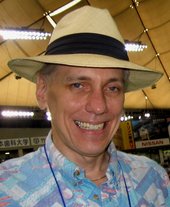
THE HOT CORNER: Marines back on the front lines

THE HOT CORNER: Marines back on the front lines
by Jim Allen (Jun 3, 2010)
Bringing in an American manager made the Chiba Lotte Marines what they are today, a team that believes winning is the norm. The ultimate irony is that having expelled the man who made the team what it is, the Marines are once more showing what they are capable of.
Veteran infielder Koichi Hori has said former manager Bobby Valentine's lasting impact was in changing the organization's mindset.
"Before Bobby, we wanted to win, but it really wasn't expected," Hori said a year ago amid a colossal collapse at Chiba Marine Stadium.
Last season, Lotte's front office did everything imaginable to isolate and antagonize the skipper, knowing that had he fought back and criticized the club, he would have forfeited the remainder of his hefty contract.
Players denied the distractions took a toll, but the evidence was there.
Preaching teamwork above all else, last year's Marines suffered in the area where teamwork has the greatest impact. When good teams collapse, the defense is typically the first thing to go. It happened to the 2005 Yomiuri Giants and it happened to the 2009 Marines.
The evidence places the epicenter of the defensive disaster at shortstop. Tsuyoshi Nishioka, normally one of Japan's better fielders at the position, dropped off the radar in 2009.
Lotte shortstops last season ranked last in Japan in errors and putout frequency and 11th in assists and double plays.
When Marines' opponents put a ball in play, they batted .324, very nearly the worst mark in Japan (Lotte was at .3242, Orix at .3244). The club's overall pitching and defense were its worst since 1993.
The pitchers eventually tried to be too fine and the once-solid starting pitching faltered.
"I started trying to do too much and maybe it was the same with the others," said Hiroyuki Kobayashi, now the Marines closer. "I began to press and rush, and panic set in. Things went from bad to worse."
At this point last season, the Marines were 23-28-3 through 54 games. On Tuesday, the Marines had Japan's best record (33-20-1) after bashing the Giants 11-0.
This year's Marines are the only team in Japan to surpass their opponents in nearly every facet of the game. Doubles, triples, homers, walks, sacrifice flies, wild pitches, errors, the Marines have better totals.
The only categories where new manager Norifumi Nishimura's guys have been vulnerable are strikeouts (the Marines have struck out 26 times more) and double plays.
The Marines grounded into an amazing 53 double plays in their first 54 games--not pretty, but not surprising given their jaw-dropping .370 on-base percentage.
It's only June, but the Marines have a chance to be just the fourth team in this decade with a .360 OBP. Over the past 25 seasons, only the 2003 Daiei Hawks (.369) have come close to .370.
In the field, it is like 2009 never happened. The Marines are once more playing the solid defense that was their trademark under Valentine. Opponents have hit .292 when putting the ball in play against Lotte, the fourth-lowest average in Japan.
Third baseman Toshiaki Imae said this year is a chance for redemption.
"Last year was an embarrassment," he said. "We're all determined not to repeat it. Everything I have in baseball I owe to Bobby, so I have to improve [this year]."
Valentine's exit was managed in the worst way possible, but sometimes change is what's needed most. In order to save unnecessary expenses, Valentine had ended the club's tradition of autumn camps in Kagoshima. But a return to Kyushu was a welcome change for many of the players, including Imae.
After having the club crack last year under the strain of the effort to oust the manager, this year is like a vacation.
Players who were nurtured on the routines and rhythms of Japanese ball can now relax without being concerned about an American manager coming up to ask them the rationale for what they are doing.
"That happened," Nishimura said. "Bobby wanted to know everything, and was always asking questions of everybody. I can see where not having that might be easier sometimes."
To access the original work (if still available), please reference:
http://www.yomiuri.co.jp/dy/sports/20100603TDY20T04.htm.
Back to the works of Jim Allen
This work is licensed under a Creative Commons License.
Some rights reserved.
